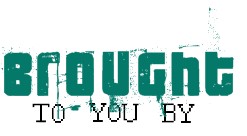QCF: Owlboy

 he concept of “living to fight another day” has always been a strange perspective, and easily one of the most endearing when it comes to the human condition, and this underdog theme has only resonated with me more and more as I got older—it never stopped being so captivating to me.
he concept of “living to fight another day” has always been a strange perspective, and easily one of the most endearing when it comes to the human condition, and this underdog theme has only resonated with me more and more as I got older—it never stopped being so captivating to me.
As much as I want to believe that I identify with that try-hard sentiment though, the reality is that I would immediately weigh in on the option of cutting my losses before I ever considered staying and finishing what may end up being a losing fight. I kick myself every time I stray towards the mindset, but the realist in me can’t help but eek out some semblance of control over which hill I choose to die on, and which I don’t. It’s this weird struggle to describe, and one that I’ve never really seen explored in great detail within most narratives we consume in modern day media.
That is, until I booted up D-Pad Studio’s Owl Boy; a game starring an introverted hero who’s only wish is to do what he thinks is right in spite of his personal flaws, and the flaws of everyone else around him for that matter. Hidden in this surprisingly charming platformer is a tale that’s deceptively rich with character and heart like none that I’ve seen in quite some time.
Admittedly, the conceit of Owl Boy was far more interesting when it was announced nine years ago than it does in today’s saturated climate of indie platformers, and in spite of the top-grade production value put into the title’s presentation, the visuals doesn’t exactly do it’s individualism any favors with the pixel aesthetic being as trendy as it’s been. In the face of these odds though, the experience offered here is unlike any other, and while the nostalgic graphics might be the first thing to catch your interest, it’s the heart of this game’s world and that cast that live within it that will keep you coming back for more.
Each personality introduced in the side-scrolling adventure is one that will leave an impression with you in some role or way that work just as much to expand the campaign anecdotally as it does mechanically.

The idea of a mute protagonist isn’t new, and it’s beyond the threshold of cliché game storytelling, but Owlboy is different in that it’s acknowledged as a point of definition for Otis, and the manner in which he struggles to express himself and his views in his quest.
At every twist and turn, the cast of supporting characters will often interpret the silent hero’s disposition in more detail than he could possible output through strictly emoting, and sometimes, they don’t even understand Otis’s feelings themselves—the result makes for a natural, yet compelling exchange of dialogue that naturally carries the development of their character and the narrative.
 The fact that Otis can’t speak is the one flaw that the hero is visibly the most self-conscious about is one of the more compelling elements behind his characterization, especially when it comes up as a reoccurring point of contention from his aggressors who torment about the shortcoming throughout the adventure. Whether or not the theme of personal struggle is a subtle commentary from D-Pad Studio reflecting the challenges they faced during the development of Owlboy, or cues taken from each of their personal experiences, the story being told in this game isn’t meant to be a feel-good story, and that OK. The pratfalls and victories encountered in Owlboy are poignant and natural, leaving a real effect on those who play it and the points of relation all the more impactful the further you jump in.
The fact that Otis can’t speak is the one flaw that the hero is visibly the most self-conscious about is one of the more compelling elements behind his characterization, especially when it comes up as a reoccurring point of contention from his aggressors who torment about the shortcoming throughout the adventure. Whether or not the theme of personal struggle is a subtle commentary from D-Pad Studio reflecting the challenges they faced during the development of Owlboy, or cues taken from each of their personal experiences, the story being told in this game isn’t meant to be a feel-good story, and that OK. The pratfalls and victories encountered in Owlboy are poignant and natural, leaving a real effect on those who play it and the points of relation all the more impactful the further you jump in.
That’s not to say that the actual game underneath all of the spectacle isn’t something to enjoy itself despite the fact that it plays backseat to wonderful presentation of the title—it’s just more serviceable than it is extraordinary.
The one aspect that stands out more than anything else is the level design to the floating world of Strato, delivering a giant world that feels both intricate and connected from start to finish. The solid level design is largely due to the pacing and ease of navigation behind each and every stage. The nooks and crannies that block your progress are intuitive without the solution being transparent in exchange, and exploration can range anywhere from liberating to finitely concise to a degree that doesn’t compromise the complexity to a degree of linearity.
The combat is…fine, but is definitely the one area that Owlboy is lacking in comparison. Aside from some upgrades, and occasional items used in contextual events through the campaign, Taking on the assorted enemies of Owlboy is easily the most typical thing you’ll take out of the experience, with the exception of the boss encounters. A lot of it has to do with the monotony in the protagonist’s repertoire of weapons, and the lack of any significant growth they can achieve in their potential.

The action from D-Pad’s premier platformer is far more memorable in the areas that are puzzle-based, aside from the stealth portions surprisingly enough. The sneaking sections manage to work around the excellent level design in an ingenious way, which is especially impressive considering that a successful stealth mechanic is hard to deliver within the framework of a 2D side-scrolling venture.
The flood of indie-developed platformers can be both a blessing and a curse to the developers striving to reinvent the genre with their work and the crowd of players that they cater to; which is why I’m happy to say that Owlboy is the cream of the crop. Not every nostalgic platformer has to be Shovel Knight to stand out, and D-Pad Studio’s inaugural offering is the best proof I can point to, it’s definitely a must play for anyone looking for a heartfelt time.

 Action Platformer,
Action Platformer,  D-pad Studio,
D-pad Studio,  Indie Games,
Indie Games,  It's finally out!,
It's finally out!,  Owlboy,
Owlboy,  Steam,
Steam,  hella indie | in
hella indie | in  QCF Reviews
QCF Reviews 










